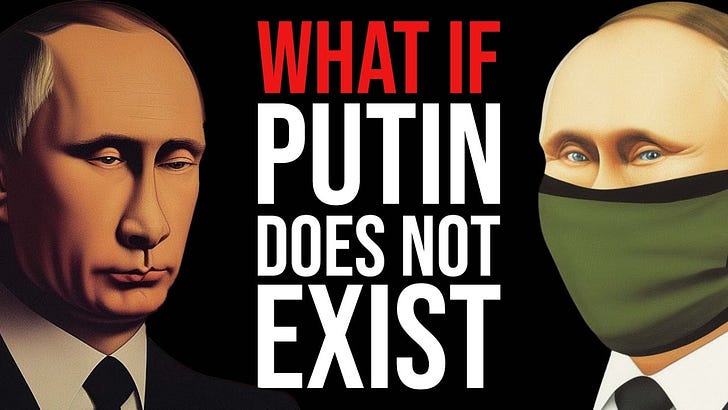Happy Cosmonautics Day!
A week ago I, Boris Shoshitaishvili of the Berggruen Institute (the Noosphere guy), and
of the Nonzero media empire, hosted a livestream, the recording of which you can see in this post. We talked amongst ourselves for the first hour and responded to questions and comments from the audience for the second. (There was also a memorable intrusion of a Nazi porn bot about halfway through, but I edited it out of the recording — for the most part.)Boris and I are doing another one — the inaugural episode of the show we’re calling KOSMOPOLITIKA — next Monday, at 1pm ET / 7pm CET, here:
This time, I expect it to be less structured. Figuring out the right flow for an online conversation with many participants, most of whom don’t know each other, will take more than a few iterations; but it’s an exciting project to work on. The theme of the next stream is BELONGING.
If you plan to attend, please RSVP by clicking the button below — this would put the event on your calendar and let us know how many people we can expect.
Early in last week’s conversation, I played the My People card. When Bob asked for a one-line description of what this new show is about, I said it will be different for different people — and I will add now, it is many different things for me — but one of them is it’s my way of “meeting ‘my people’, dispersed throughout the world, and living through history with them”.
Naturally, Bob followed up by asking who these people I refer to as “mine” might be; and to that question, I don’t have an answer. I know that I feel a sense of kinship to many of you — those with whom I’ve exchanged letters or had one-on-one conversations — but I don’t know where this feeling originates. You’re young, old, middle-age, men and women, religious and not, living (I’m trying to remember the chats that I’ve had so far) in Serbia, Ireland, Italy, Canada, Russia, South Africa, Germany, the UK, the US, and elsewhere. You’re all very different. One thing you do have in common is you’re reading this missive, and so might attend the Monday gathering.
I’ve never identified too strongly with any group of people, large or small. My social network rests on one-on-one relationships, and what those rest on is anyone’s guess.
I’ve always felt very Russian, but it is the outcasts and outliers within my culture that I resonate with the most; when my president said, some days after I left the country, that Russia is cleansing itself from “traitors and scum”, that it will spit us out “like gnats”, I did not feel surprised — there is a whole multi-generational lineage of Russians with a challenging relationship with their state and, oftentimes, broader society.
There isn’t a cult or political party that I belong to. I like to study them (I went to the now-defunct Scientology center in Moscow twice after I ran out of documentaries on the topic), but I’ve never encountered one I would think about joining.
The only club I’m technically a member of is my local cannabis club — the only legal way to buy weed in Spain…
I wonder about these questions of group identity.
My Russianness does define me in many different ways (though, of course, never wholly); more than that, whether I want to or not, I do have ties with the Russian state — for one, that’s who issues my passports, without which no other state, and, for that matter, no airline company, are willing to do business with me.
There’s no set answer to the question “What does it mean to be Russian?”. My life is, among other things, an on-going articulation of my response to it. I know that my government is working with ideologues and political technologists on formulating a different answer. We’ll have to wait to find out who plays this game better.
The nation state has become such a prominent force in the world, something we’re so very used to, that it can be hard to imagine how group identity worked before its emergence — when nobody felt particularly French or Russian, when in place of a nation there were towns and villages, faith, and fealty to a lord or a king.
At the same time, it could be that soon, we won’t have to imagine: many national identities are in a crisis, struggling to redefine or maintain their people’s identity as migration, separatism, political and religious polarization, and technology challenge the old definitions. Bob says it was the printing press that allowed for the rise of the nation, ironing out the dialectic kinks of language over long distances; the Internet and AI are similarly disruptive technologies pushing towards globalization.
But who knows! Watching the Internet, which in my childhood was assumed to be a wild, lawless, and borderless place, balkanize — break down into segments with functioning borders around them, and different laws of engagement within — and watching at the same time ChatGPT and its ilk creep into everyone’s life as all-purpose employees, home doctors, therapists, educators, and artists-in-residence, I imagine a sci-fi novelistic scenario:
The world governments take the threat of malevolent information as or more seriously as they do biological viruses. They inoculate their populations with chips that allow telepathic connection to sanctioned chatbots — ostensibly, for fact checking. This is Bicameral Mind 2.0: you do some of your thinking yourself, but whenever you pause, a second inner voice takes over, treating your thinking as prompts. For most, the line between “their” and “bot” thinking quickly gets very blurry and then disappears.
China achieves impressive social cohesion with their highly effective state-issued thoughtbot. The US is as polarized as ever, as two or three corporate ones compete for the domination of the thought market. Europe uses slowed-down, heavier-regulated versions of the American product, limiting its output to work hours (the further south you go, the less reliable the schedule). Israel’s bot, trained on the Torah, goes through constant fine-tuning via conversations with the rabbinic class. Russia has one for public consumption — so filled with low-quality propaganda people learn to tune it out — and another for the elite, dubbed Putin-2, that is given total control of the mind of the human who sits on the throne at any given moment. The country finally develops a reliable system for peaceful rotation of power, except that it’s only the human substrate that is rotated.
Boris and I were both born in the Soviet Union only three years before its collapse. His family left Russia for the US when he was just 5 years old; mine, or what’s left of it, is still there, while I’m building a new one in voluntary exile.
Social upheaval and dissolution of past realities do get tiresome, but, at some level, they feel like home turf for me. There is a coziness to “living through history” with people whose company I enjoy.
That’s where I think the Monday conversation — 1pm ET, 7pm CET, RSVP — will begin. Where it will go from there depends on you.
Here are some more ideas that were brought up in the one from last week, which you can watch above:
Listen to this episode with a 7-day free trial
Subscribe to Psychopolitica to listen to this post and get 7 days of free access to the full post archives.















